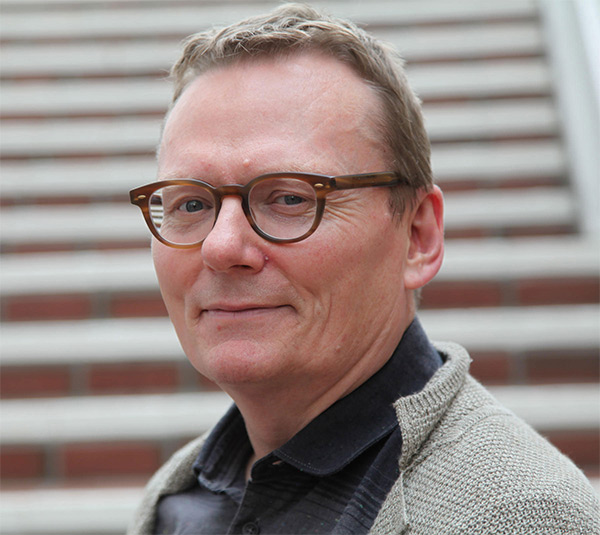BOONE—Dr. James Robinson, leading specialist in development economics and economic history at the Harris School of Public Policy at the University of Chicago, will be the keynote speaker at the 11th Annual Appalachian Spring Conference in World History and Economics: Institutions and Development, to be held at Appalachian State University April 15-17.
Robinson will address “Living with Leviathan” beginning at 9 a.m. April 16 in 116 Anne Belk Hall. The public is invited; however, registration for the conference is required. For more information, visit http://history.appstate.edu/appalachian-spring-conference
Robinson’s main research interests are in comparative economic and political development with a particular interest in Latin America and Sub-Saharan Africa. He is currently conducting research in the Democratic Republic of the Congo, Sierra Leone, Haiti and in Colombia where he has taught for many years during the summer at the University of the Andes in Bogotá. He has written and co-authored numerous books and articles, including the widely acclaimed “Economic Origins of Dictatorship and Democracy.” Recent articles include “Institutions, Human Capital and Development” in the Annual Reviews of Economics, and “Chiefs: Economic Development and Elite Control of Civil Society in Sierra Leone” in the Journal of Political Economy.
In addition, the conference will feature two roundtable discussions on the history of Cuba and speculation on the country’s future economy with an emphasis on the recent diplomatic events between Cuba and the U.S.
The first panel, titled “December 17, 2014: The U.S.-Cuban Rapprochement in a Historical Perspective,” will be chaired by Dr. Joseph Gonzalez on Friday, April 15, from 4:30-6 p.m.
in 1012 Peacock Hall. It will focus on Cuba’s economic history within a global perspective, especially its diplomatic relationship with the U.S.
The second panel, “Cuba 2026: The Futures of Cuba,” will be on Saturday, April 16, from 2:30-4 p.m. in 116 Anne Belk Hall. Dr. Jeffrey Bortz will serve as chair and the discussion will focus on speculation about Cuba’s economic future in light of the recent reparation of the relationship between the country and the U.S.
Both round table panels will feature the following scholars:
- Oscar Zanetti, professor emeritus, University of Havana and noted economic historian of Cuba
- Dr. Servando Valdés Sánchez, professor and researcher, Institute of Cuban History, Havana, Cuba
- Dr. Louis A. Pérez, Jr., J. Carlyle Sitterson Professor of History, University of North Carolina, Chapel Hill
- Dr. Joseph J. Gonzalez, assistant professor, Interdisciplinary and Global Studies programs, Appalachian’s Department of Cultural, Gender, and Global Studies
- Dr. Renee Scherlen, professor and curriculum coordinator for Appalachian’s Department of Government and Justice Studies
- Dr. Jeffrey Bortz, professor of history at Appalachian
About Appalachian State University
As a premier public institution, Appalachian State University prepares students to lead purposeful lives. App State is one of 17 campuses in the University of North Carolina System, with a national reputation for innovative teaching and opening access to a high-quality, cost-effective education. The university enrolls more than 21,000 students, has a low student-to-faculty ratio and offers more than 150 undergraduate and 80 graduate majors at its Boone and Hickory campuses and through App State Online. Learn more at https://www.appstate.edu.
What do you think?
Share your feedback on this story.












